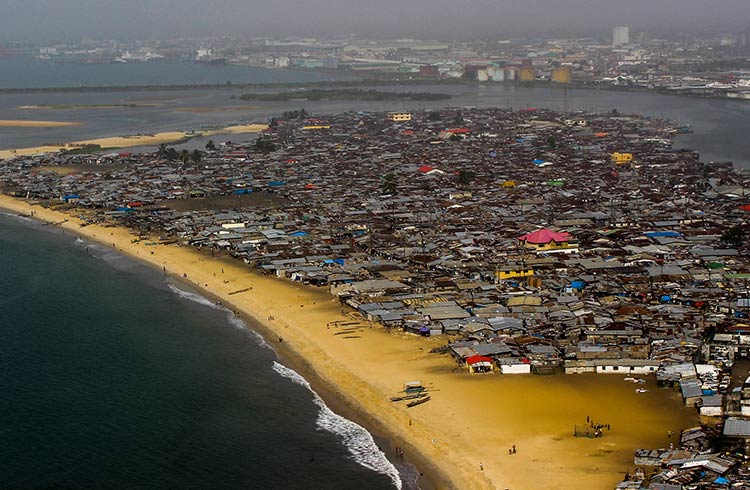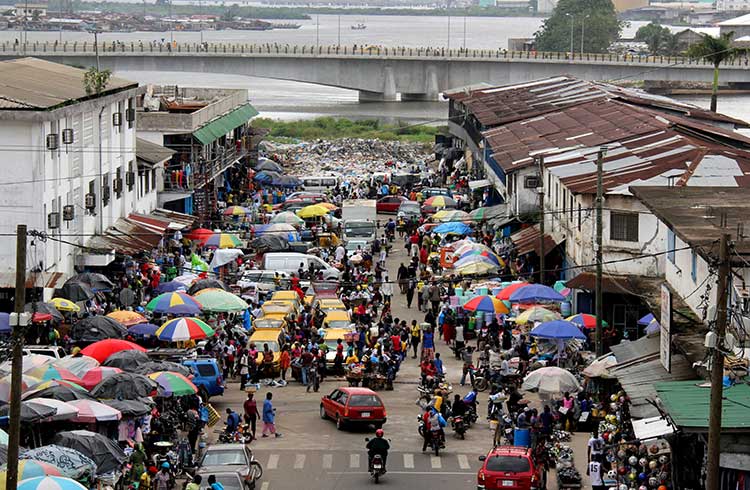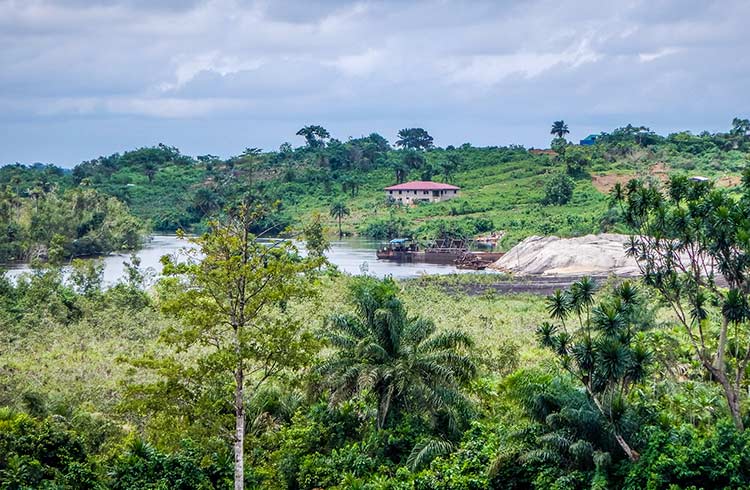Politics and Civil Unrest in Liberia: Is it Safe to Go?
Despite civil war ending, Liberia is slowly rebuilding itself. But, there are limitations on what is available for travelers, and there is still a threat of violence.
 Photo © Getty Images/BethanyFank
Photo © Getty Images/BethanyFank
Liberia has suffered a more or less constant string of civil war and strife since 1989. This came to an end in 2003 when the UN stepped in and largely took control of security in Liberia. As such, there's a large contingent of UN troops and police advisors in Liberia, but this doesn't mean there's any real measure of stability. The potential for violence is very high due to both political and social tensions.
- Is it safe to travel to Liberia?
- Lack of facilities in Liberia
- Liberia's history of violence
- Still, take caution in Liberia
Is it safe to travel to Liberia?
Most foreign governments have advised travelers to Liberia to exercise a high degree of caution. Additionally, many have also issued do not travel advisories for areas on the border between Liberia and Ivory Coast.
If you do go to Liberia, make very sure you have heavy security arrangements with a reliable organisation before your arrival.
Be certain that your security arrangements include pick up from the airport, delivery to your place of residence while in Liberia, and that your accomodation has adequate protection including armed guards.
It's worthwhile to pay attention to the UN Military radio station, UNMIL radio 91.5FM.
Lack of facilities in Liberia
Although there's been some level of peace in the last seven years, Liberia is still one of the poorest nations in the world and there is still significant damage to basic infrastructure.
Availability of basic services outside of the capital of Monrovia is patchy at best. Electricity, running water, sewage and landlines for telecommunications are generally limited or non-existent outside of the capital.
Even things as basic as fuel, transport, and accommodation aren't always available outside of the capital.
Within the capital, facilities for foreign visitors are somewhat better, but not by much. Most of the hotels have running water and electricity, but not all of them can guarantee the services twenty-four hours a day.
Liberia's history of violence
Although violence is a constant factor in Liberia, there have been incidents of larger scale violence in recent years. Large-scale outbreaks tend to be due to economic, religious, ethnic, or social conflicts that rapidly spiral out of control. Response time of UN troops and security forces is often limited and can take more than a day.
February of 2010 saw violence, with multiple fatalities in Voinjama, near the Guinean border. Conflict between Christians and Muslims led to the destruction of many Churches, Mosques, as well as the market being burned down.
Rumours that the Muslim Mandingoes were going to seek revenge for this incident led to mass panic in Monrovia where Christians believed Muslims were going to attack. Although this never happened, before authorities could convince people that it was just a rumour, considerable civil disturbance occurred.
So be aware the problems in one part of Liberia may lead to mass panic in another era, largely due to people's experiences with the civil war.
Corporate and primary resource interest can also be points of conflict. In March of 2010, a large group comprised from the local community invaded a mining camp near Greenville in southeast Liberia, due to a grievance the locals had with the mining operation.
International staff were taken hostage, and though the incident was controlled by local authorities, neither the United Nations military, nor the national police, were able to reach the site for more than a day. So do remember that slow response time is a factor in Liberia.
Land disputes, illegal mining, occupation of rubber plantations and conflicts regarding all of these can lead to serious violent conflict. Rubber plantations, and interests in particular, seem to attract a great deal of conflict.
In 2007, the LAC rubber plantation in Grand Bass County expanded, much to the anger of the locals, who responded by shooting the plantation manager dead. He was a Belgian national; in Liberia, it pays to remember that ex-pats are not safe, regardless of what corporate position they're in.
There have also been a number of attacks in the Firestone rubber plantation by illegal rubber tappers. Do not travel away from the major routes in the plantation.
Still, take caution in Liberia
The civil war is over, but that doesn't mean that everyone who was involved in it has thrown away their weapons. Many of them still reside in some of the less accessible areas.
Any areas with limited, or no, government or UNMIL presence may have organised and armed groups of former combatants. This includes the Sinoe Rubber plantation and the Sapo National Park.
The government is trying to make an effort to stamp out corruption and improve the wellbeing of the country however there is still a lot of work to do.
Related articles
Simple and flexible travel insurance
You can buy at home or while traveling, and claim online from anywhere in the world. With 150+ adventure activities covered and 24/7 emergency assistance.
Get a quote

3 Comments
How long did you stay in Liberia?
A week??'!!
I was offered a job in Liberia and almost turned it down becuase of this article and another Wolrd Nomad article saying it is dangerous for women. As a woman I was particualrly concerned about gender based violence. I am so glad that I ignored the article and got advice from people who are actually living in Liberia and understand the situation. Furthermore, if you Google a recent report 10 most dangerous countries to be a women in you will find Liberia is not in there! The main thing we don't do is wonder the streets at night and since living here for three months nothing bad has happened at all. We have found the people kind and open. Year by year the country is improving and UNMIL has left since the latest elections transfered power peacfully to a new government. It is not easy for tourists but developments are being made to provide more services for tourists such as a new airport shuttle bus Infinity Shuttle Services and a surf school in Robertsport. I would recommend any one to give it a go.
Thank you, Maja for this accurate and current picture of what is taking place on the ground. I am conducting research for individuals interested in traveling to Liberia for business. After reading your comment, I am confident to encourage them to travel and invest in the country.